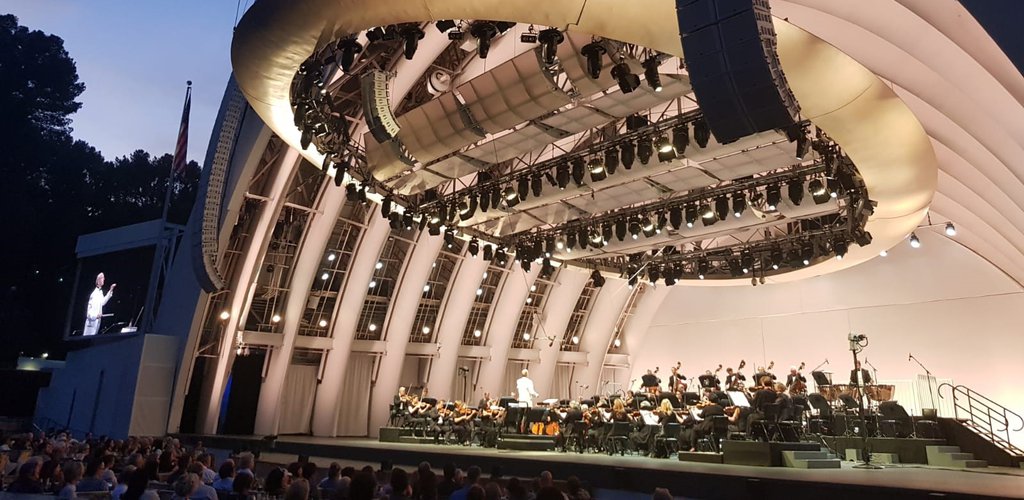The Budapest Festival Orchestra, conducted by Iván Fischer, concluded its three-concert Hollywood Bowl series with Mozart’s final symphony, “Jupiter,” and his last work, the Requiem. Critical review by Mark Swed, Los Angeles Times.
The Hollywood Bowl flags flew at half-staff Tuesday, and a requiem was the main business of the evening. The concert was not dedicated to the victims of America’s three recent shootings, nor to Toni Morrison, who had died the day before. The requiem had been scheduled months earlier as part of the Budapest Festival Orchestra’s touring Mozart program, which began with the composer’s 41st and final symphony, the “Jupiter,” and concluded with his unfinished Mass, written during his final days.
But the concert was a memorial of gripping power nonetheless, with an astonishing relevance to the tragic deaths in Gilroy, Calif.; El Paso; and Dayton, Ohio. Mozart’s final utterance further illuminated what made Morrison one of America’s, and the world’s, most meaningful voices, a writer for whom, like Mozart, comprehending the seemingly unnerving times we live in was a compulsory activity.
There is anger in Mozart’s Requiem, written as he lay dying at age 35. An opera composer, Mozart interrupted work on the Requiem to finish “The Magic Flute” and to write his final ode to humane governance, “La Clemenza di Tito.” With the Requiem, he was the first to so operatically dramatize the rite of the dead, and the Hungarian conductor at the Bowl , Iván Fischer, was a merciless Mozartean who brought out the outright fury that much of America feels.
The “Day of wrath, day of anger” of the “Dies Irae,” for instance, became this very Tuesday. Each word of Latin text was spit out by the Los Angeles Master Chorale, making Mozart’s unspeakable might astoundingly singable. There was, as well, beauty to behold, which is also compulsory in Mozart. The finely focused orchestral playing was an enthralling mix of creamy modern strings with fruit-honeyed winds and piquant brass instruments from Mozart’s time. The solo vocal quartet (Jeanine De Bique, Kelley O’Connor, Michael Schade and Adam Plachetka) were all viscerally compelling to watch on the video screens, as was Fischer.

